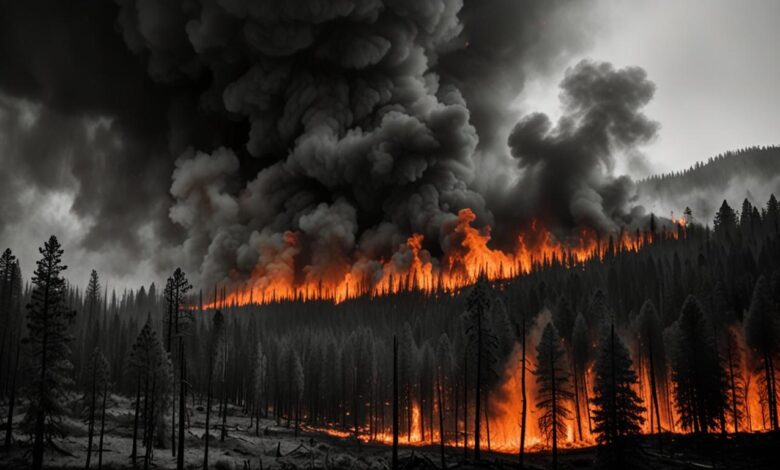Record-breaking wildfires in Canada emit more CO2 than India’s fossil fuel consumption

In 2023, wildfires in Canada released a record-breaking 3.28 billion tons of CO2, surpassing India’s fossil fuel emissions. The fires burned an area larger than West Virginia, impacting air quality across North America and emphasizing the need for accurate accounting of wildfire emissions in climate strategies.
In 2023, record-breaking wildfires in Canada released massive amounts of carbon dioxide, surpassing the emissions from India’s fossil fuel consumption, according to new research. Scientists at the World Resources Institute (WRI) and the University of Maryland found that these fires emitted 3.28 billion tons (2.98 billion metric tons) of CO2, which is akin to the emissions produced by 647 million cars annually.
The wildfires ravaged an area larger than West Virginia, burning 29,951 square miles (77,574 square kilometers) of forest, significantly above the average from 2001 to 2022. This accounted for 27% of global tree cover loss in 2023. Researchers attributed the unprecedented intensity of the fires to higher temperatures and below-average rainfall, which were exacerbated by climate change. The study noted the warming trend in northern latitudes is causing longer fire seasons and making forests more susceptible to burning.
The impact was not limited to environmental damage; the fires also affected air quality across large swathes of North America, including cities like New York, and led to the evacuation of over 200 communities. Researchers emphasized that while some forests will regrow and sequester carbon, the process will take decades, leading to sustained contributions to atmospheric carbon levels and climate warming.
The data highlights the ongoing challenge of accurately accounting for wildfire emissions in the fight against global warming. Canada, for instance, does not currently report natural fire emissions in its greenhouse gas inventories, focusing instead on human-caused fires and timber harvesting. This research suggests that a more comprehensive accounting of wildfire emissions is critical for effective climate strategies.








